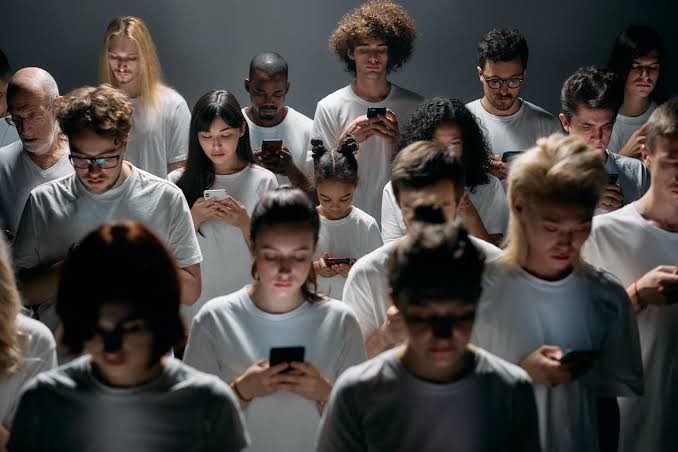The proliferation of smartphones has dramatically transformed our daily lives. Offering unprecedented connectivity convenience and access to information. However, this widespread adoption has also raised concerns about potential negative effects on mental health and wellbeing. This article delves into the various ways smartphones impact mental health. Examining both the benefits and challenges they present.
Benefits of Smartphones for Mental Health
Enhanced Connectivity and Social Support
Smartphones facilitate instant communication. They allow individuals to stay connected with family friends and support networks regardless of geographical barriers. This constant connectivity can provide sense of belonging and emotional support. Particularly for those who may feel isolated or lonely. Social media platforms and messaging apps enable users to maintain relationships. And build new ones. Fostering sense of community and connectedness.
Access to Mental Health Resources
Smartphones have made mental health resources more accessible than ever before. Numerous apps and online platforms offer tools for meditation mindfulness and cognitive behavioral therapy (CBT) These resources can help individuals manage stress. Anxiety and depression more effectively. Additionally, telehealth services allow people to consult with mental health professionals remotely. Increasing access to therapy and counseling for those who may have difficulty attending in-person sessions.
Convenience and Efficiency
Smartphones can enhance productivity and organization, reducing stress and anxiety associated with managing daily tasks. Calendar apps, reminders, and to-do lists help users keep track of appointments and responsibilities, leading to better time management and reduced cognitive load. This convenience can contribute to a greater sense of control and overall wellbeing.
Negative Impacts of Smartphones on Mental Health
Addiction and Dependence
One of the most significant concerns is smartphone addiction. The constant need to check notifications, social media, and messages can lead to compulsive use and dependence. This addiction can interfere with daily life, reducing productivity and increasing stress. Excessive screen time can also disrupt sleep patterns, contributing to sleep disorders and associated mental health issues such as anxiety and depression.
Social Comparison and Anxiety
Social media platforms often present idealized versions of reality, leading users to compare their own lives unfavorably to those of others. This social comparison can foster feelings of inadequacy, low self-esteem, and anxiety. The pressure to present a curated, perfect image online can exacerbate these issues, creating a cycle of negative emotions and stress.
Cyberbullying and Online Harassment
The anonymity and reach of the internet have made cyberbullying and online harassment significant issues. Victims of cyberbullying can experience severe emotional distress, anxiety, and depression. The pervasive nature of smartphones means that harassment can follow individuals into their private spaces, making it difficult to escape and recover from these negative experiences.
Impact on Cognitive Function
Reduced Attention Span and Focus
The constant stream of information and notifications from smartphones can fragment attention and reduce the ability to focus. Multitasking and frequent interruptions can impair cognitive function, leading to decreased productivity and increased stress. This reduced attention span can also impact academic and professional performance, contributing to further anxiety and frustration.
Information Overload
The vast amount of information available through smartphones can lead to information overload, where individuals feel overwhelmed by the sheer volume of data they are exposed to daily. This overload can result in decision fatigue, stress, and difficulty concentrating on important tasks. Managing this deluge of information can be challenging, leading to mental exhaustion and burnout.
Strategies for Mitigating Negative Effects
Mindful Use and Digital Detox
Practicing mindful smartphone use involves being aware of how and when one uses their device, setting boundaries to prevent overuse. Digital detoxes, where individuals take breaks from their devices, can help reset habits and reduce dependence. Setting specific times for checking emails and social media, and turning off non-essential notifications, can also help manage usage more effectively.
Promoting Healthy Online Behavior
Encouraging respectful and positive online interactions can help mitigate the negative impacts of cyberbullying and harassment. Educating individuals, especially young users, about the importance of digital etiquette and the potential consequences of their online actions is crucial. Reporting and blocking abusive behavior can create a safer online environment, reducing the emotional toll of negative interactions.
Utilizing Mental Health Apps and Resources
Leveraging the positive aspects of smartphones by using mental health apps and resources can help manage stress and anxiety. Apps that promote mindfulness, meditation, and CBT can provide valuable tools for maintaining mental health. Regularly consulting with mental health professionals through telehealth services can ensure individuals receive the support they need.
Conclusion
Smartphones have become an integral part of modern life, offering numerous benefits but also posing significant challenges to mental health and wellbeing. While they enhance connectivity, access to resources, and convenience, they also contribute to addiction, social comparison.
